Sentence Structure Teaching Resources
Teach students the elements of sentence structure this school year with printable worksheets, sentence-building activities, sorting games and more elementary school teaching resources designed to help extend your students' understanding of how to write clear and concise sentences that follow the rules of English grammar.
This extensive collection of teaching resources has been created by teachers for teachers like you. Aligned to the Common Core curriculum, the ELA collection includes editable worksheets and teaching presentations and more to save elementary teachers time on lesson planning.
Created by expert teachers, each resource in this sentence collection has been carefully reviewed and curated by our team. That means it's ready to use in the classroom! You'll even find editable resources, plus differentiated options.
New to teaching about sentence structure, or just looking for fresh ways to engage your students? Read on for a primer from our teaching team!
English Sentence Structure Explained
From subjects to predicates, objects to clauses, the English language is packed with rules specific to sentence structure that students need to learn on the way to becoming proficient writers.
Ready to break down how to build a sentence in English and look at some examples? Let's go!
Subject
The subject of a sentence is the noun or pronoun that performs the action or is described in the sentence.
For example, in the sentence "Jaquan did his homework," Jaquan is the subject.
Predicate
The predicate of a sentence expresses the action or state of being in a sentence.
Let's go back to the sentence "Jaquan did his homework." In this case, did is the predicate.
Object
The object of a sentence is a noun or pronoun that receives the action of the verb.
For example, "homework" would be the object in "Jaquan did his homework."
Complement
The complement of a sentence is a word or phrase that completes the meaning of a sentence.
The complement can be a direct object, indirect object, or subject complement.
For example: "a doctor" in "She became a doctor."
Modifier
A modifier in a sentence provides additional information about a word or phrase in the sentence. It can be an adjective or an adverb. Example: "kind" in "She was a kind teacher."
What Are Clauses?
Clauses are groups of words containing a subject and a verb. They're important to understand when learning sentence structure. After all, one kind of clause is a sentence!
There are two main types of clauses:
- Independent Clause — An independent clause can stand alone as a complete sentence because it expresses a complete thought. For example: "I did all of my homework."
- Dependent Clause — A dependent clause cannot stand alone as a sentence because it does not express a complete thought. It relies on an independent clause to make sense. Example: "When I went to the store," (Dependent clause) "I bought an apple." (Independent clause). Dependent clauses can be paired with independent clauses to build sentences.
- Plus Plan
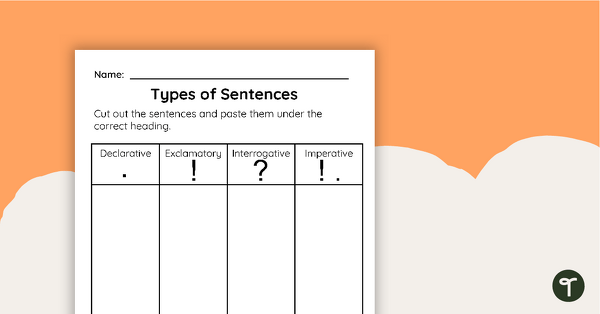
Types of Sentences Sorting Worksheet
A cut and paste sorting worksheet to practice identifying the four types of sentences.
- Plus Plan
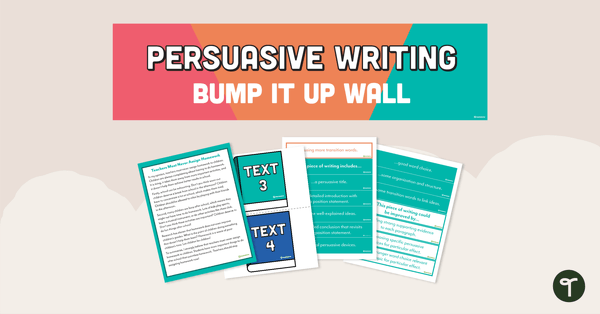
Persuasive Writing Bump It Up Wall – Grade 5
Help your 5th-grade students "bump up" their persuasive writing with this bulletin board display.
- Plus Plan
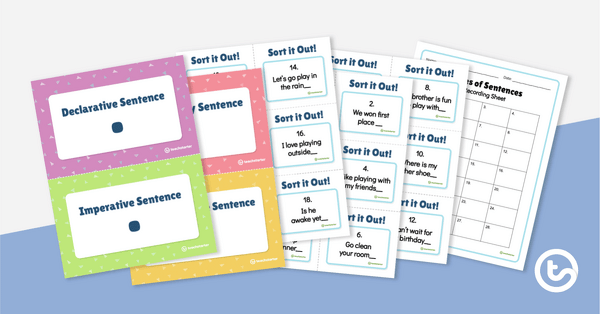
Sort It Out! - Types of Sentences
Practice identifying the 4 kinds of sentences by sorting all 30 cards by their sentence type and missing punctuation marks.
- Plus Plan
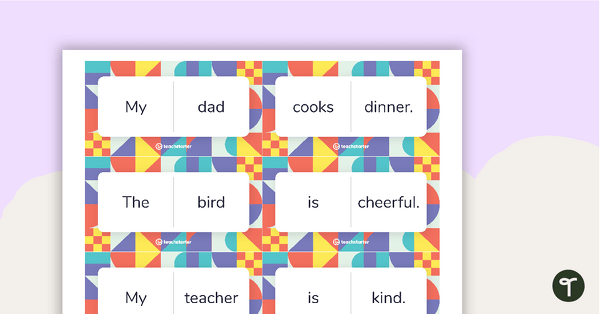
Simple Sentence Dominoes - Set 1
A set of 30 dominoes to assist younger students with building simple sentences.
- Plus Plan
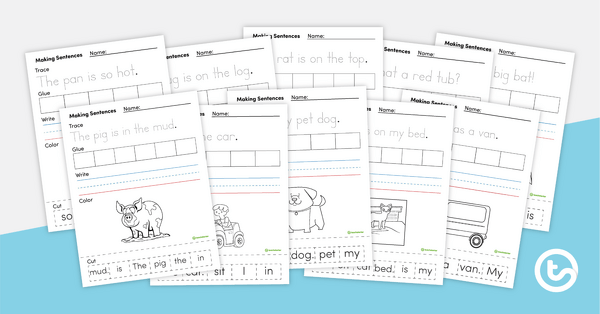
Making Sentences – Cut and Paste Worksheets
A set of 10 cut and paste worksheets for making short sentences.
- Plus Plan
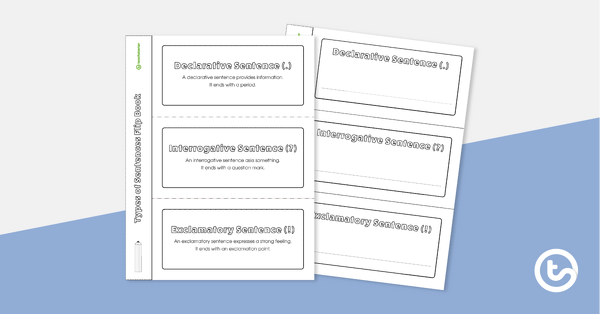
Types of Sentences Flip Book
A template for students to use when learning about types of sentences.
- Plus Plan
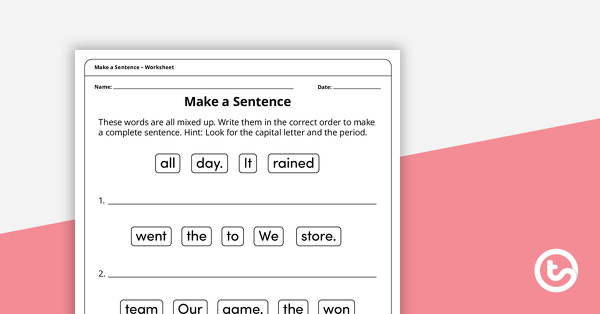
Make a Sentence – Worksheet
A set of worksheets where students unscramble words to create a sentence.
- Plus Plan
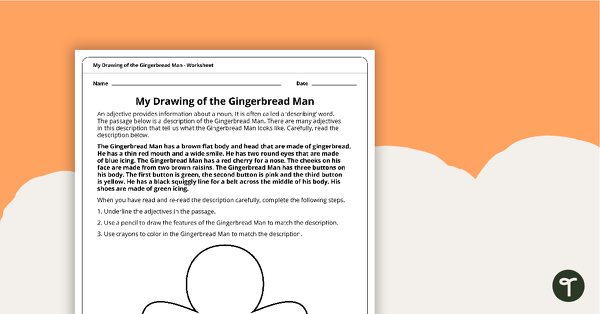
My Drawing of the Gingerbread Man Worksheet
An engaging worksheet in the theme of the Gingerbread Man that explores the use of adjectives through drawing.
- Plus Plan
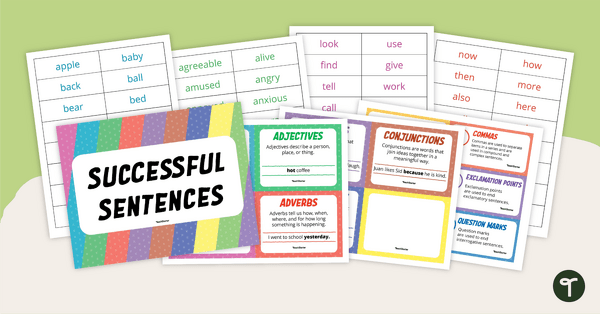
Successful Sentences – Sentence Construction Cards
Word cards for constructing complex sentences.
- Plus Plan
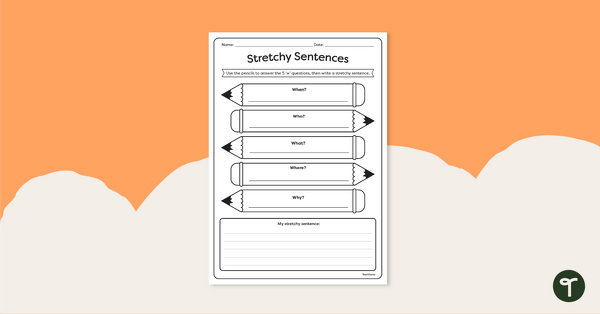
Stretchy Sentences Worksheet
Use this worksheet to help your students write detailed and descriptive sentences.
- Plus Plan
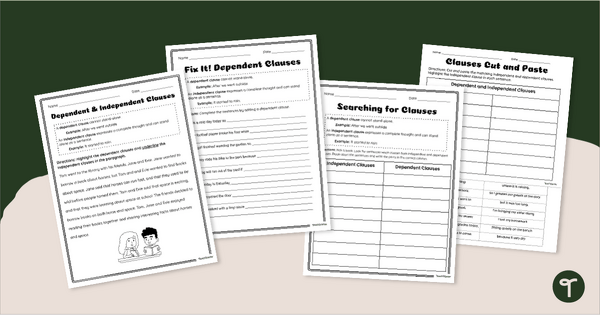
Independent and Dependent Clauses - Worksheet Pack
Introduce the concept of independent and dependent clauses with a set of printable sentence structure worksheets.
- Plus Plan
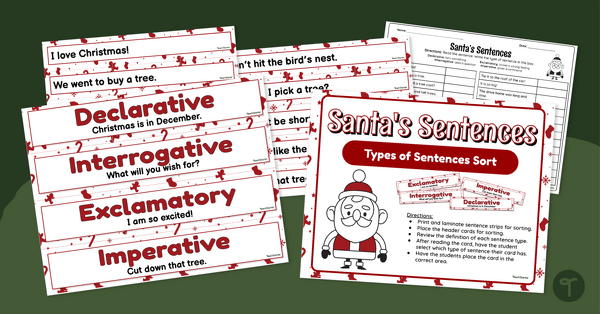
Christmas Writing Center - Types of Sentences for 2nd Grade
Help your students answer “What Type of Sentence Is This?’ with a printable Christmas sorting activity on the 4 types of sentences.
- Plus Plan
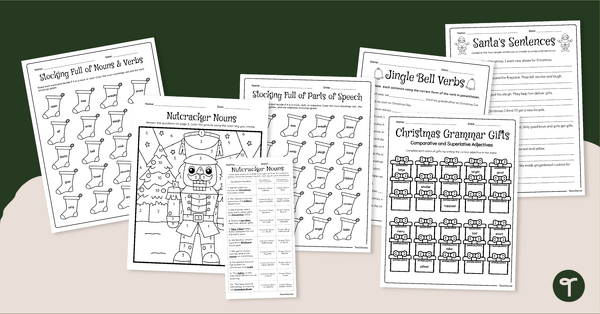
3rd Grade English Worksheets - Christmas Printables
Add some Christmas spirit to your December grammar lessons with a printable pack of Christmas-themed 3rd-grade English worksheets.
- Plus Plan
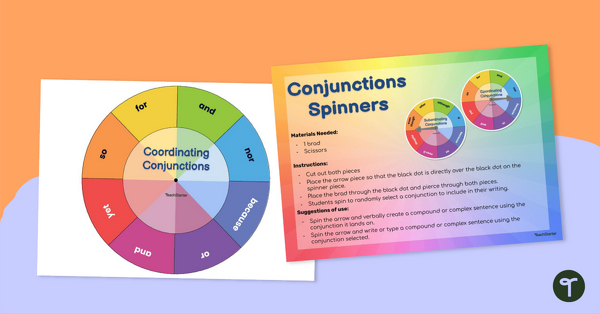
Conjunctions Spinners (Coordinating Conjunctions, Subordinating Conjunctions, Correlative Conjunctions)
Bring some fun to your grammar lessons with these colorful conjunctions spinners! Students spin to reveal a conjunction to use in their writing or oral language.
- Plus Plan
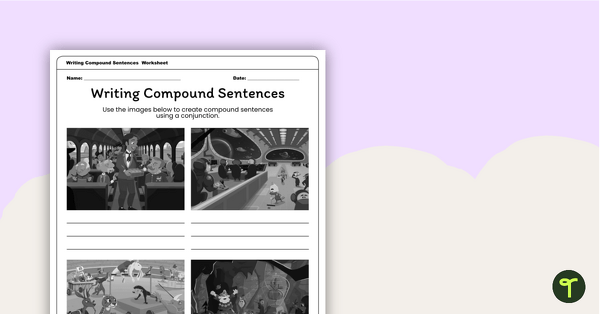
Writing Compound Sentences Worksheet
Spark students' creativity with this conjunctions worksheet containing four images to prompt students to write compound sentences.
- Plus Plan
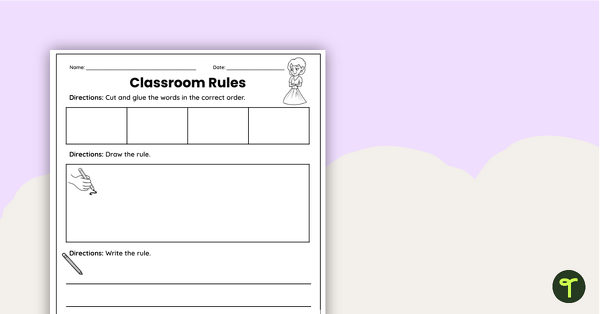
Classroom Rules Writing Prompt Pack
Teach classroom rules and procedures and review early writing skills with Classroom Rule Writing Worksheets for primary grades.
- Plus Plan
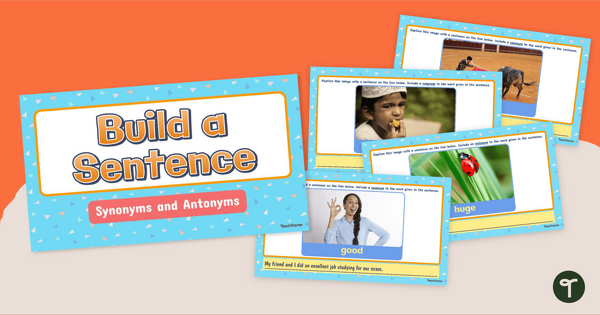
Synonyms and Antonyms - Build a Sentence Interactive
Build strong vocabulary and sentence-writing skills with an interactive synonyms and antonyms sentence-building activity.
- Plus Plan
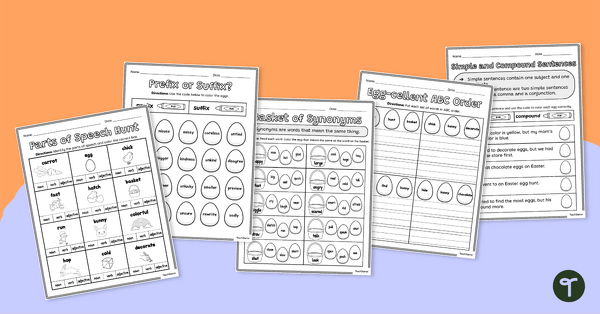
Easter Grammar - Worksheets
Practice grammar conventions with a pack of Easter English worksheets.
- Plus Plan
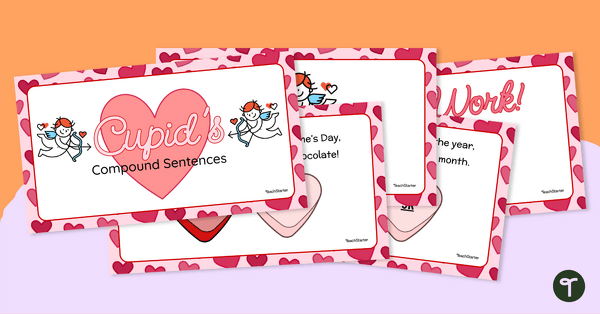
Cupid's Compound Sentences Valentine's Day Activity
Build some sweet sentence writing skills using a fun Valentine’s Day Compound Sentence interactive activity.
- Plus Plan
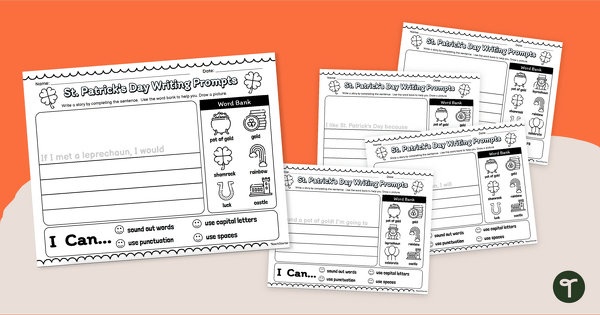
St. Patrick's Day Writing Prompt Worksheets
Celebrate St. Patrick’s Day and write imaginative stories using a collection of narrative writing prompts.
- Plus Plan
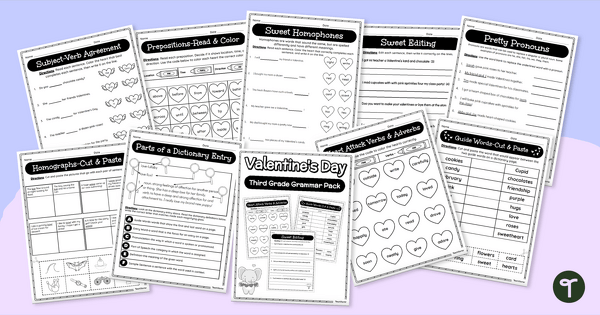
Valentine's Day - 3rd Grade English Worksheets
Review and practice a wide range of grammar skills with a pack of printable 3rd grade writing worksheets.
- Plus Plan
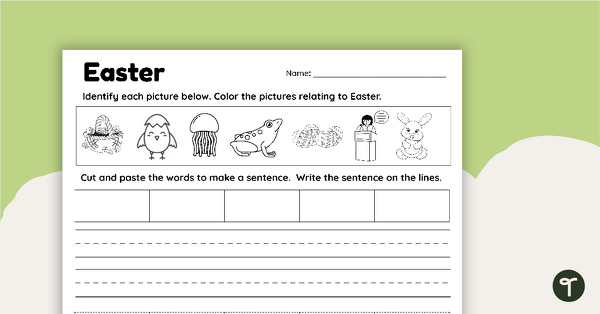
Holiday Worksheet - Easter Sentences
Build and write sentences about Easter sentence-building worksheets.
- Plus Plan
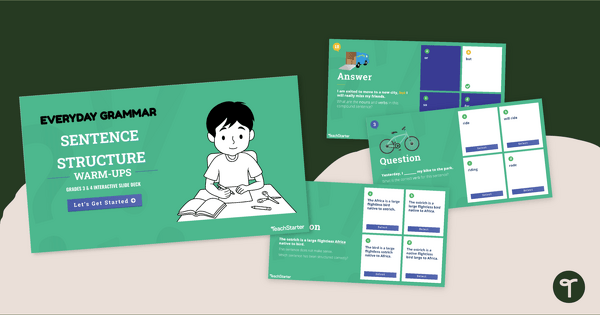
Daily Grammar - Sentence Structure Warm-Ups – Grades 3 and 4
An engaging 40-slide interactive Google Slides deck to use in grades 3 and 4 when learning about grammar and sentence structure.
- Plus Plan
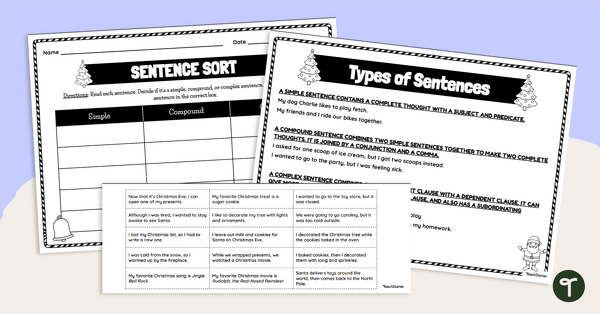
Christmas - Simple, Complex, and Compound Sentence Sort
Practice reading, identifying, and writing simple, compound, and complex sentences with a Christmas cut and paste worksheet.
- Plus Plan
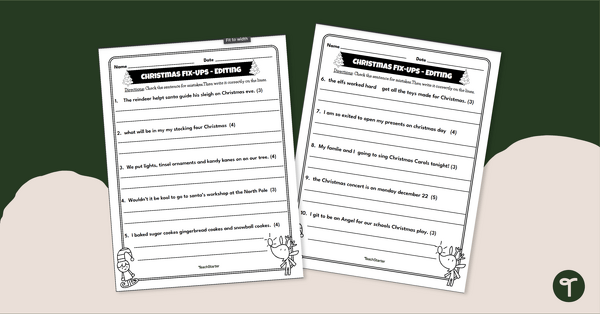
Christmas Worksheet - Sentence Editing
Edit and correct capitalization, punctuation, spelling, and spacing errors with a set of Christmas Fix the Sentence worksheets.
- Plus Plan
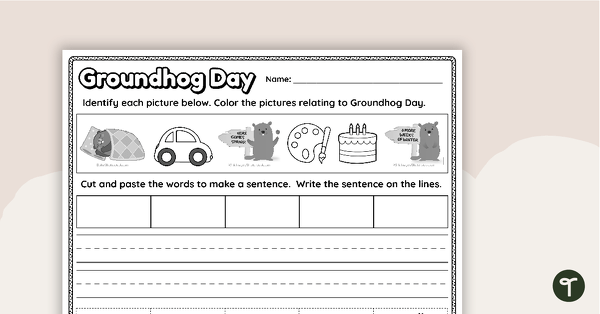
Holiday Worksheet - Groundhog Day
Build and write sentences about Groundhog Day with a no-prep Groundhog Day worksheet.
- Plus Plan
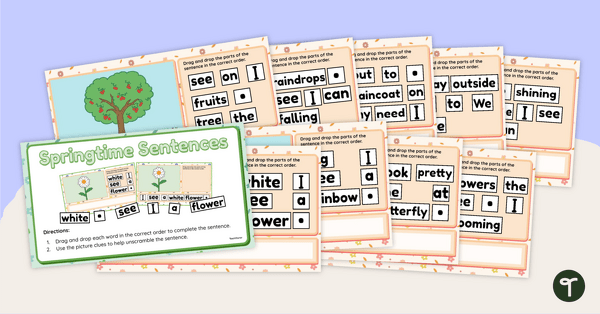
Springtime Sentence Building - Interactive Activity
Build a strong sentence-writing foundation with an interactive spring sentence-building activity.
- Plus Plan
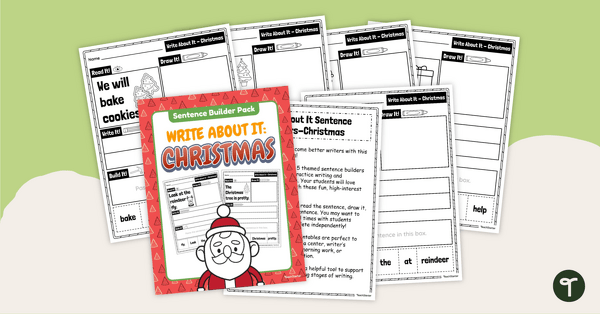
Write About It! Christmas Sentence Builder Pack
Write around the Christmas tree with a group of Christmas sentence building worksheets for beginning writers.
- Plus Plan
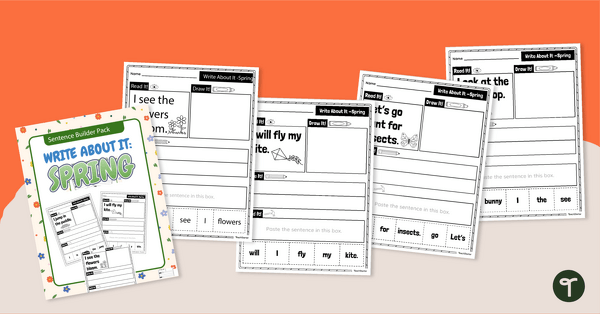
Write About It! Spring Sentence Writing Worksheets
Introduce new writers to writing complete sentences in early grades with a group of kindergarten writing prompts about spring.
- Plus Plan
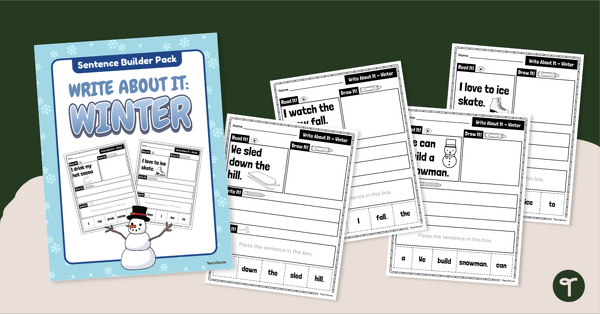
Write About It! Winter Sentence Builder Pack
Differentiate writing instruction in primary grades with a group of leveled informational writing prompts about winter
- Plus Plan
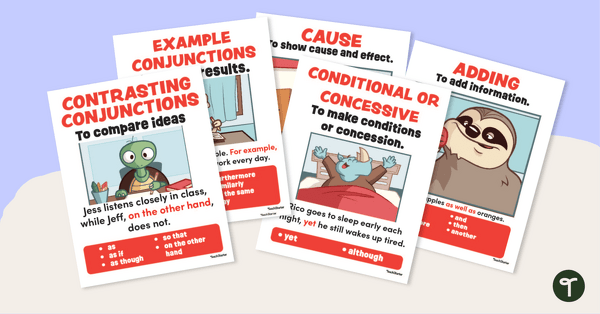
Sentence Conjunctions Posters for Lower Elementary Students
Display this set of 8 grammar posters to teach students about sentence connectives and conjunctions.
- Plus Plan
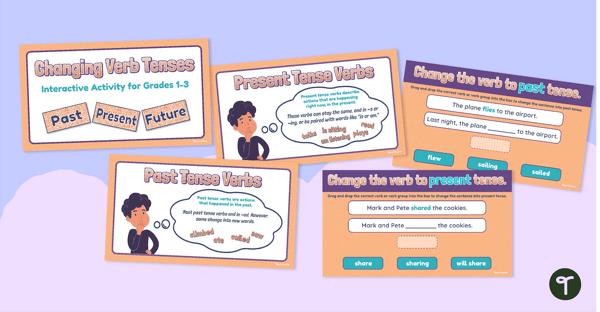
Changing Verb Tenses Interactive Google Slides Activity
Provide your students with a digital learning environment to practice using past, present, and future tense verbs.